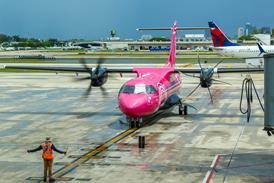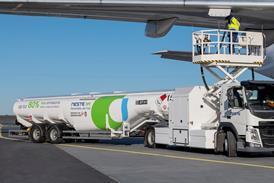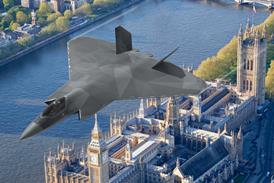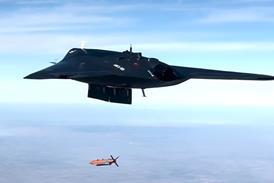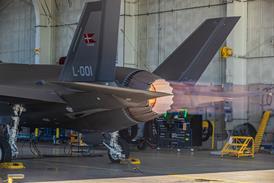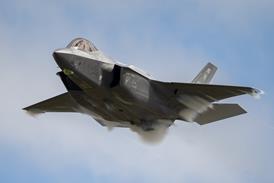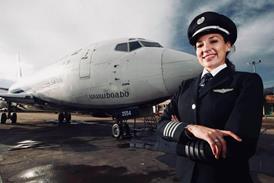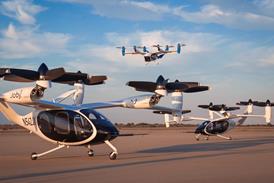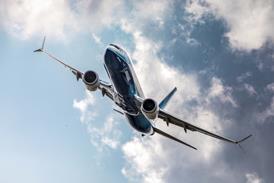There are early signs of a real challenge to the stifling protocols that govern the way airlines are allowed to trade
It is early days, but rumblings in the sub-strata of global air transport's long-unchanged terrain are signalling seismic change. Seismologists may be good at picking up warnings, but are notoriously unable to predict how long it will be before the earthquake hits, and it is the same in the case of multi-nationalising the air transport industry.
American Airlines president Don Carty says US airlines, and also the government, must start thinking radically about the regulatory straitjackets that airlines have always lived within, most not even noticing their restrictive clothing because they were born wearing it. But the industry's dire condition post-11 September, Carty insists, means that the airlines and government no longer have the luxury of clinging to outdated restrictions on national ownership, or even on cabotage - the right of one country's airlines to trade within the country of another.
"Open skies", still a popular buzz-phrase, is usually used in self-congratulatory tones by two nations announcing a newly liberalised bilateral air service agreement. The expression "liberal bilateral", however, is an oxymoron. Bilaterals, by definition, are exclusive - they exclude all nations' airlines except carriers whose majority shareholders are based in either of the two countries that have signed the agreement. The "liberal bilateral" usually sets limits, even if fewer than before, and reciprocal cabotage rights are, almost without exception, expressly excluded.
The European Union's transport commissioner Loyola de Palacio calls this situation "a fundamental paradox". The world air transport industry, she says, "is one of the key instruments of globalisation. It has all the trappings of a liberalised worldwide industry, yet it is one of the most regulated and restricted businesses in existence. Compared with other strategic industries like telecommunications and banking, airlines operate in a strange world of bilateral trade agreements, government intervention and ownership restrictions. Air transport sits apart from other industries - it is untouched by the multilateral work of the World Trade Organisation."
Airline alliances are the closest thing to a cross-border merger or take-over that the current conventions allow. De Palacio does not, however, explain why air transport has been left behind in this industrial time-warp.
History and prejudice is the main answer. All the behavioural protocols for the world airlines, still watched over benignly by the International Civil Aviation Organisation, were set in Chicago in 1944. Most of the operating and airworthiness standards have been updated regularly since then. But those governing ownership and where any given airline has a right to fly - ironically known as "freedoms" - have hardly been changed for 57 years. Airlines' "rights" under the 1944 treaty are not global rights, they still have to be negotiated in bilaterals; and their "freedoms" are not freedoms - they are limitations.
There are still some politicians who believe that their countries would not have air services without a national flag carrier, or without airlines owned by shareholders based in their own country. They should look at Belgium's air services since the recent demise of Sabena. That "vacuum" was filled in seconds. In the USA, which might not have had a state-owned carrier but certainly used to sanction international flag carriers, where is the vacuum left by the once mighty Pan American World Airlines and Trans World Airlines? Or, for that matter, Braniff, Eastern Airlines, or Republic?
Some politicians argue that they must have nationally owned carriers within their borders or they will not have a logistics force available in time of war. They need to be reminded of government's power to requisition what it needs in war, whoever owns it.
So where are the objections - since Carty raised the subject - to freeing British Airways to buy a controlling share in American Airlines? Does the US government fear that BA would leave American's market unprovided for? If that were BA's intention - and this example is not intended to be prophetic - why would it buy the market opportunity, skilled workforce and hardware that American brings with it? And how about the reverse? Would US carriers, when their health returns, refuse the opportunity to be able to take over, or merge with, an overseas carrier that would take it into a market that it covets?
Opportunity is the key word. De Palacio and Carty have signalled that airlines will, some day, be given real, unfettered opportunity for the first time in their history.
Source: Flight International

